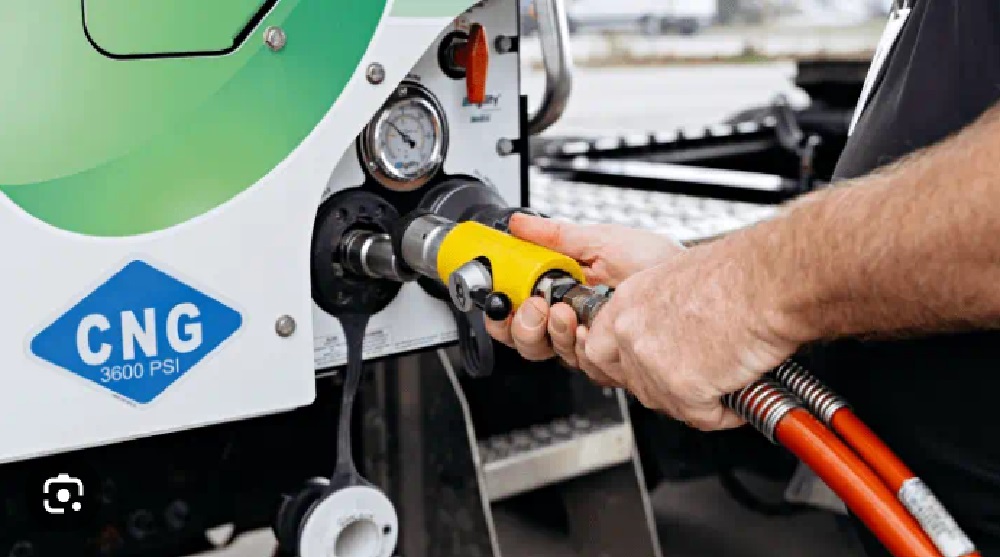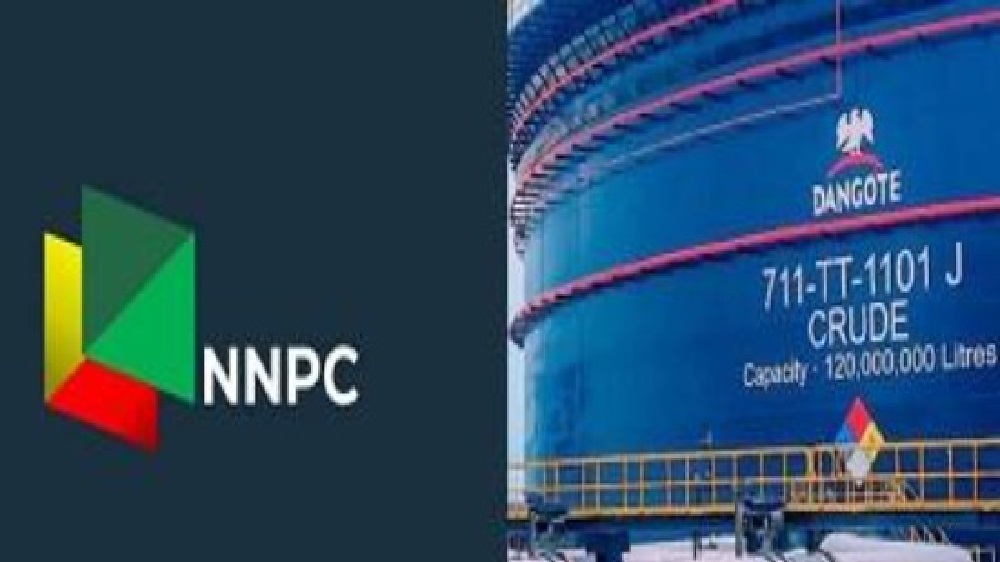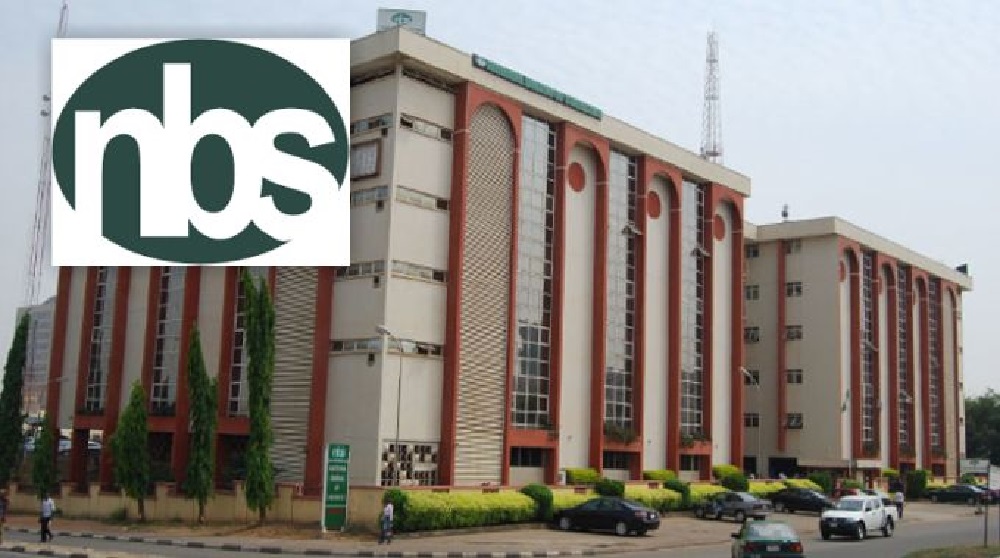Economy
FCT, Ogun, Lagos receive 1,000 CNG kits

The Federal Government says it has commenced distribution of fresh Compressed Natural Gas kits to some states of the federation in its drive to foster rapid adoption of CNG.
This was disclosed Friday by an official of the Presidential Compressed Natural Gas Initiative, Moses Onate, during an inspection of the CNG kit warehouse located in Ibafo, along the Lagos-Ibadan Expressway, Ogun State.
With the hike in fuel prices, many drivers claimed they have been struggling to keep their businesses afloat.
The exercise, which the Federal Government said could reduce the cost of transportation by over 40 per cent started in Abuja and Lagos.
Speaking on the distribution Onate noted that states like Lagos, Oyo, Kaduna, Ogun and the FCT would be getting 1,000 conversion kits to continue the conversion initiative.
Onate added that of the 1,000 kits made available to the warehouse, 450 have been distributed to Kaduna and Abuja while 550 would be distributed to Lagos, Ogun and Oyo.
He said, “As of this morning, 450 have gone out to Kaduna and Abuja. 550 will be going to Lagos, Oyo, and Ogun states today.”
He also said the FG had not got any negative feedback on the kits distributed previously.
According to him, there are up to 10 CNG conversion centres in Lagos State alone.
“This initiative will seriously help people as regards the cost in the sense that fuel is around a thousand naira now, but CNG is around N210/N230.
“The gross margin between what fuel is being sold for and CNG price will have a lot of positive impact on everybody. We will live to enjoy CNG,” he said.
In his reaction, a pipeline engineer at the warehouse, Austin Nwaodhu, urged motorists and vehicle owners to adopt the CNG initiative stressing that it offers a cheaper alternative to fuel because of its low consumption rate, and user-friendliness.
He added that CNG did not emit much fumes into the atmosphere which could cause harm to members of the public.
“CNG is a good initiative by the president that will help to bring down the cost of running a vehicle compared to petrol. It will bring down the cost of running our cars.
“It is friendly to the environment and does not emit fumes unlike petrol,” Nwaodhu stressed.
Economy
SEC orders public companies to publish financial statements online by Jan 2025

The Securities and Exchange Commission (SEC) has issued a new directive requiring all publicly listed companies in Nigeria to publish their financial statements on their official websites, effective January 2025.
This was disclosed in a circular issued by the Commission on Thursday, stressing the importance of the move for investor confidence and regulatory compliance.
The SEC warned that non-compliance with this directive would attract strict sanctions, demonstrating its commitment to improving transparency and accessibility in the Nigerian equities market.
According to the SEC, “The Securities and Exchange Commission (‘the Commission’) has observed that public companies file their periodic returns with the Commission and relevant securities exchanges without simultaneously publishing the same on their websites. This omission contravenes Rules 39 and 41 of the Commission’s Rules and Regulations.”
The Commission noted that while publicly listed companies routinely file periodic returns with it and relevant securities exchanges, many fail to make these financial statements accessible to the investing public on their websites. This practice, it noted, violates the requirement to ensure that financial disclosures are readily available to guide investors in making informed decisions.
SEC explained the rationale for the directive, stating that publishing financial statements online provides seamless access for the investing public. This ease of access, the Commission said, is essential for encouraging sound investment decisions and ensuring investor confidence in the market.
“Timely disclosures remain a key component of shareholder engagement,” the Commission stated. “The publication of periodic returns on their websites is aimed at providing seamless access by the public to such information, which would serve as a guide to making sound investment decisions.”
The Commission further noted that effective from January 2025, any public company that fails to simultaneously file its periodic returns with the SEC and relevant securities exchanges and publish them on its website will face penalties.
Economy
Dangote Refinery, NNPCL resume fight over $1bn loan

Dangote Group, owners of Dangote Refinery, and the Nigerian National Petroleum Company Limited, NNPCL, have clashed over a $1 billion crude oil-backed loan.
Recall that barely 24 hours ago, in a statement credited to NNPCL spokesperson Olufemi Soneye, the state-owned oil firm said it secured a $1 billion loan backed by crude to support the Dangote Refinery during liquidity challenges.
However, Dangote Group spokesperson, Anthony Chijiena, has described NNPCL’s claim as ‘misinformation’.
The company clarified that the $1 billion crude backed loan is about five percent of the total investment that went into building the 650,000 barrels per day refinery.
According to him, it is inaccurate to say NNPCL facilitated $1 billion for Dangote Refinery amid liquidity challenges.
Chijiena explained that NNPCL had proposed a 20 percent stake investment valued at $2.76 billion in the Dangote Refinery, but that didn’t materialise.
He noted that NNPCL was able to invest $1 billion, which amounts to 7.24 percent equity value.
“Our decision to enter into a partnership with NNPCL was based on recognition of their strategic position in the industry as the largest offtaker of Nigerian crude and, at the time, the sole supplier of gasoline into Nigeria.
“We agreed on the sale of a 20 percent stake at a value of $2.76 billion. Of this, we agreed that they will only pay $1 billion while the balance will be recovered over a period of 5 years through deductions on crude oil that they supply to us and from dividends due to them.
“If we were struggling with liquidity challenges, we wouldn’t have given them such generous payment terms.
“As of 2021, when the agreement was signed, the refinery was at the pre-commission stage. In addition, if we were struggling with liquidity issues, this agreement would have been cash-based rather than credit-driven.
“Unfortunately, NNPCL was later unable to supply the agreed 300 thousand barrels a day of crude, given that they had committed a greater part of their crude cargoes to financiers with the expectation of higher production, which they were unable to achieve.
“We subsequently gave them a 12-month period for them to pay cash for the balance of their equity given their
inability to supply the agreed crude oil volume.
“NNPCL failed to meet this deadline, which expired on June 30th, 2024. As a result, their equity share was revised down to 7.24 percent. These events have been widely reported by both parties.
“It is, therefore, inaccurate to claim that NNPCL facilitated a $1 billion investment amid liquidity challenges.
“Like all business partners, NNPCL invested $1 billion in the refinery to acquire an ownership stake of 7.24 percent. That is beneficial to its interests,” the Dangote Group statement said.
Economy
Nigeria’s National Bureau of Statistics Website Hacked

The National Bureau of Statistics (NBS) on Wednesday announced that its official website has been hacked.
The bureau disclosed this on its X handle.
The NBS announced that it is currently working to recover the website and urged the public to disregard any messages or reports posted on the site until it is fully restored.
“This is to inform the public that the NBS Website has been hacked and we are working to recover it. Please disregard any message or report posted until the website is fully restored. Thank you,” the NBS said.
The NBS is the principal agency responsible for the collection, analysis, and dissemination of statistical data in Nigeria.
The statistics office has recently published several key reports such as the Nigerian Gross Domestic Product (GDP) Report Q3 2024, which provides an update on Nigeria’s economic growth and performance, the Nigeria Labour Force Survey (NLFS) report for Q2 2024, which offers insights into Nigeria’s labor market, including employment and unemployment rates and the Consumer Price Index November 2024, which provides the latest information on Nigeria’s inflation rate, among others.
In November, the NBS said Nigeria’s GDP grew by 3.46 per cent year-on-year in real terms in the third quarter of 2024.
The NBS said this growth rate is higher than the 2.54 per cent recorded in the third quarter of 2023 and higher than the second quarter of 2024 growth of 3.19 per cent.
On Monday, the NBS said Nigeria’s annual inflation rate rose to 34.60 per cent in November from 33.88 per cent in October.
This marks a continuation of the upward trend observed in September, when the nation recorded a reversal of a two-month decline.
-

 News23 hours ago
News23 hours agoJust in: Court Grants Dele Farotimi Bail
-

 News23 hours ago
News23 hours agoArmy Council elevates 35 Brigadier Generals, 73 Colonels
-

 News7 hours ago
News7 hours agoEx-Gov Yahaya Bello leaves Kuje prison after satisfying bail condition
-

 News7 hours ago
News7 hours agoPrimate Ayodele releases 2025 prophecies on Tinubu, Atiku, Nnamdi Kanu, Wike, others
-

 News19 hours ago
News19 hours agoWike gives final ultimatum to land owners to pay for C-of-O
-

 News23 hours ago
News23 hours agoPDP cancels Gov’s birthday Party over oyo stampede
-

 News7 hours ago
News7 hours agoLocal rice price drops ahead of Christmas
-

 News7 hours ago
News7 hours agoThree Nigerians make Forbes 50 wealthiest Black Americans list 2024








